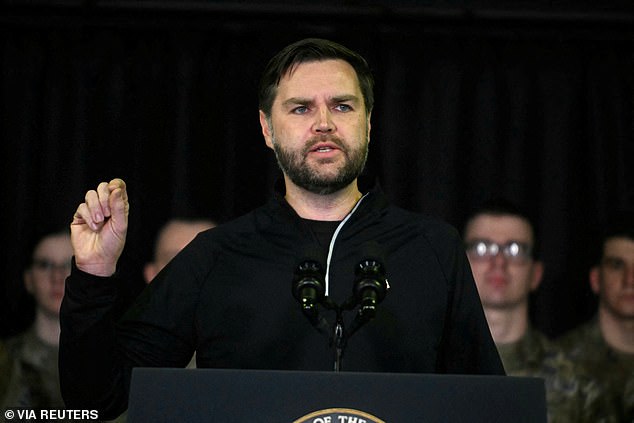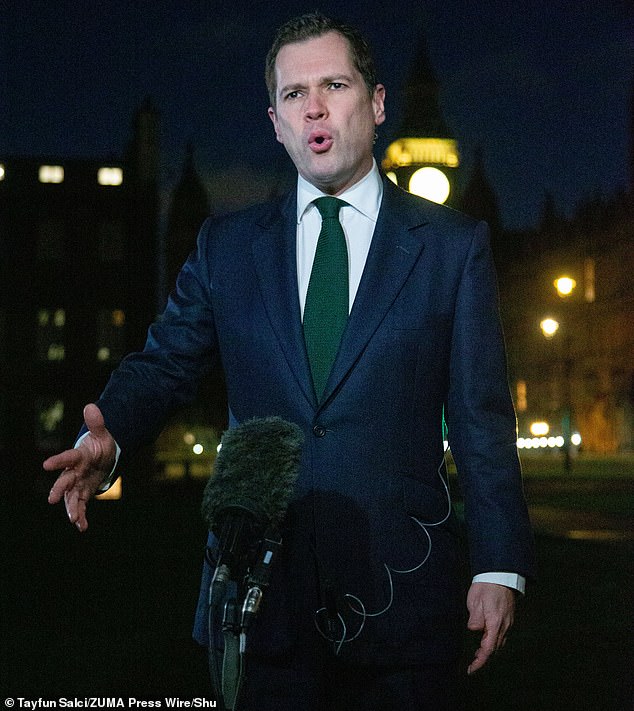Free speech is under threat in Britain because people fear causing offence over race, religion and immigration, according to a new study.
More than a third of Britons felt they had to self-censor their views on race or ethnicity while 32 per cent said they felt they could not speak freely about immigration or religious extremism.
Some 41 per cent felt they had to hold back their views on transgender issues while 31 per cent felt constrained from discussing the conflict in Gaza following the October 7 Hamas terror attack.
Almost half of Britons believe people are too easily offended, according to research for the Commission for Countering Extremism, which advises the Government.

Earlier this year US Vice-President JD Vance (pictured) said Britain has a free speech problem as he raised the case of an Army veteran prosecuted for silently praying outside an abortion clinic
Older, white males are among those who feel the most restricted, and the more outspoken a person’s views, the more likely they are feel constrained by the risk of offending others.
The study, based on interviews with 2,500 people, was conducted by Ipsos to establish the state of free speech in Britain and was first reported by the Telegraph.
People who are white, male, older and not university educated were more strongly in favour of free speech, regardless of the issue, but felt less able to speak their minds, the poll found.
Some 48 per cent of this group said they felt they had to hold back their comments on race, far higher than the average of 36 per cent.
The same was true on immigration, where 43 per cent felt they had to hold back on their views compared to an overall average among the public of 32 per cent.
Among religious groups, Christians were more likely to back the right to free speech, but also more likely to feel they had to hold back on expressing their views.

Shadow Justice Secretary Robert Jenrick (above) said that the Left’s ‘determination to shut down debate around immigration has created a chilling environment for free speech’
By contrast, women, younger Britons and people from ethnic minorities or non-Christian religions tended to think that people needed to be more sensitive in the way they spoke.
Meanwhile the poll found that people predominantly held back from expressing their views to avoid causing offence or starting an argument.
Some 46 per cent resisted expressing their views on any religious figure, text or teaching and 35 per cent held back their political views to avoid causing offence.
Some people held back because of heightened concerns about their safety, with a quarter restraining themselves from discussing religion because of safety fears and 17 per cent their political views.
Robert Jenrick, the shadow justice secretary, said that the Left’s ‘determination to shut down debate around immigration has created a chilling environment for free speech’.
He told the Telegraph: ‘In this context, a catch-all definition of Islamophobia would be a disaster, worsening the culture of fear that has spread throughout society.’












